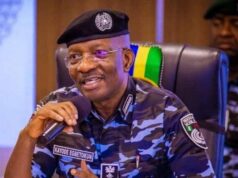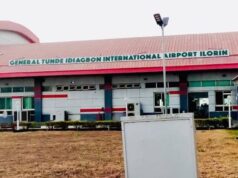
Long before the governor of Ebonyi state, Martins Elechi dismissed the opposition All Progressive Congress (APC) as an empty noise maker that will get nowhere, I had been trying to put my thoughts together on the growing numerical strength of the party and the impact it is looking up to exert in the 2015 general elections.
Of course, there has been a lot of bitter cross-firing and pure insults thrown around by members of the two opposing groups-those in the Peoples Democratic Party (PDP) and those in the APC, especially by the new entrants from breakaway PDP. As a matter of fact, anger and insinuations are the main stock-in-trade between the two groups.
So much have the two groups engaged in political mudslinging that most times, the realities are buried, even if they are contained in such insulting posturing.
Just before governor Elechi threw his jibe at APC, the Delta state governor, Dr. Emmanuel Uduaghan had come out with a sensible political postulation that in politics, anything can happen: people can change from one party to the other at the time one least expects.
Such are the issues in the nation’s political front burner that are actually trying to overshadow what seems to be the Governor Elechi’s matter-of-fact statement.
Yes, governor Elechi spoke out of pent-up anger, but does the reality on the ground show a different scene all together?
In other words, governor Elechi’s view about APC being an empty noise maker that will get nowhere (in winning elections) may appear as an extreme view by an angry and highly biased man, but, does the reality on the ground not pointing towards the direction the governor spoke?
If history is anything to go by, it would be recalled that in the second part of the second republic, similar political scenario, as it is now playing out amongst the opposition political parties, played out. That was when the opposition political parties, such as Nigerian Peoples Party (NPP), Great Nigerian Peoples Party (GNPP), Peoples Redemption Party (PRP) and, to some extent, the Unity Party of Nigeria (UPN), formed an alliance against the ruling National Party of Nigeria (NPN). The alliance (which many political pundits saw then as a gang-up), was principally meant to stop NPN from winning the 1983 general elections after it swept the 1979 elections across the major parts of the country.
There are some similarities in the ways the PDP and old NPN emerged and being operated. The two were firmly rooted in grassroot and tailored to etch themselves in the consciousness of the people at the grass roots.
The founding fathers of PDP, like NPN, broadened their outlooks beyond just the existence of a body called political party; they wanted and built an enduring all-encompassing system, even if it lacked directional ideology.
As a mass movement conglomerate, PDP gradually turned into one big system, with presence in every home, in every hamlet and village. And, of course, these are where the winning votes always come from in any election.
Conversely, most of the opposition parties do not have the same type of penetration into the nook and crannies of the country. As a matter of fact, some of the opposition parties are regional-based, and try as they can to spread their reach across the country, they discover that they cannot go beyond their regions.
And, like it happened in the second republic, alliance for the purpose of wrenching power from the ruling party, in some cases, used to produce the exact opposite.
Even more dangerous is that the principal actors in the ongoing political re-alignment appear to have embarked on the exercise before they would begin to think of how to spread the party’s tentacles into the hinterland.
The gladiators in the new blocked opposition may not have realized that what, in deed, is remained of PDP still have enough muscle to flex for the simple fact that, at least, for now, they are confidence that the uneducated and old people in the remote villages have PDP running in their blood stream.
Chances are that, such people, innocently, may not have even heard of the exploits of other party or parties.
And, of course, the incumbency power, which, incidentally appears to be the object of the formation of APC and the current massive defection to same, still poses some kind of potency, especially, with the mentality of the leaders desperately insisting on clinging to power.
Opposition, or more appropriately, APC, therefore, needs to do more to gain an upper hand over PDP, especially, by spreading like wild fire in dry harmattan to the remote parts of the country other than receiving decampees from PDP around Nigeria’s big cities and making noise (empty or otherwise) about it.
Massive decamping by members of PDP to the party (APC) in the major towns and cities may look very attractive and humiliating to PDP, but, it may be deceptive and dangerous, for, as governor Uduaghan said, anything can happen in politics.
One cannot be so sure until the chips are down!






